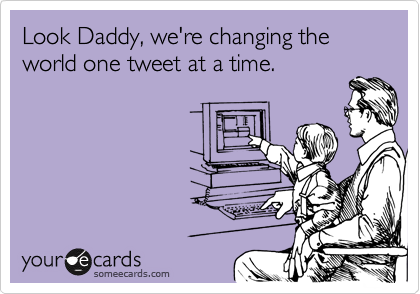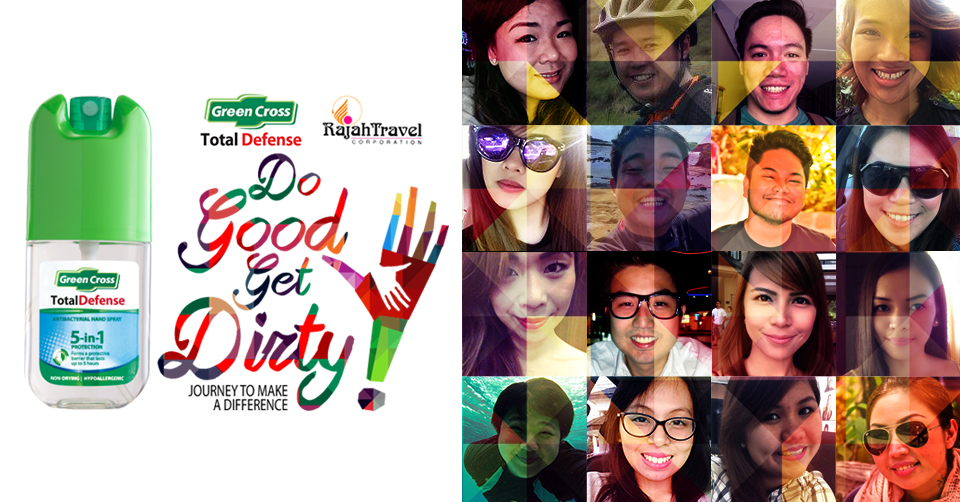Why Liking Won’t Save the World
One tweet = save the world
We live in an age when everyone can call themselves activists. With the rise and popularity of social media, having a voice—and having it heard—is now as easy as posting a status message on Facebook or a tweet on Twitter. The future students, who will be burdened with having to memorize today’s speeches, will soon have an easier time, since they are now 140 characters or less, or three-word hashtags.
That’s great, right? Anyone can form an opinion, choose sides, and take a stand. One of social media’s greatest benefits is that it has democratized society. Today, you can tweet politicians or celebrities, and they can read it. It is through social media that you can tell your celebrity crushes you’re obsessed with them. Without social media, we won’t have the joy of seeing public figures live their personal lives.
What cause are you fighting today? / World hunger. How about you? / I don’t know. Depends on what I see
Another great thing about social media is that it is easy to influence people. When you post a status update on your thoughts on a new campaign, it is easy for a friend to like it and be influenced by it. And when your post goes “viral,” you can be considered an influencer.
But how come in the age where information moves faster than the traffic in EDSA, there are no revolutions? How come we constantly see different calls to action on our social media feed and see no outcome? It’s easy to rally for gender equality or environmental awareness when it’s to share a photo, but how come we’re not seeing any results? Oh, that’s right. We’re too busy sitting and tweeting.
There’s actually a phrase for that. It’s called slacktivism. It describes an “activist” that puts minimal effort into a cause. The minimal effort may be “feel-good” measures like sharing a photo, retweeting, or signing online petitions, whose sole purpose is to make the user feel good about himself for contributing. While it is great to share the cause, sharing them is not worth anything if you don’t stand up and take your stand.
Another problem of seeing all these great causes online is that it confuses people. With so many ideas appearing every second, it is easy for netizens to switch opinions every few minutes. We’re sure you know at least one person who said that the ALS Ice Bucket Challenge was a waste of water, only to see him post an update saying it’s the best thing ever. We read about netizens bashing the people of LaBoracay for leaving the beach a mess, only to find them throwing their cigarette butts on the street. We have become so malleable that we believe everything we see online.
How do we address this? How do we go forward? The information is there. What do we make out of it? Simple. We act on it. We talk the walk. We actively support the causes we truly believe in instead of blabbing about it online. Your tweets aren’t helping. Your like isn’t helping. It’s helping in the sense that you’re spreading information or you think it’s interesting, but that does not solve anything.
In the past, it was easier to fight for a cause because believers were actually fighting. They’d go out, make their voices heard (literally), and fight. But when your “fighting” means posting hashtags, that doesn’t do anything.
The Do Good Get Dirty campaign is a journey to make a difference
In short, do good and get dirty. There is a campaign going online called Do Good Get Dirty that encourages that. Rather than just watch the effects of natural disasters on Facebook and point fingers at the government, the campaign urges you to follow through your stand and use the hashtag #dogoodgetdirty. Do you care about rebuilding homes or protecting a wildlife sanctuary? Then do your part to actually making that happen. There’s an old saying that goes: be the change you want to see. And the first step? Put your phone down, move away from the computer, and stand up.
Why Liking Won’t Save the World







